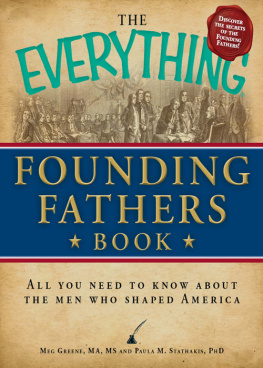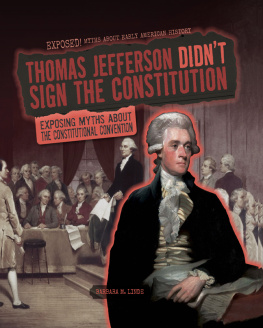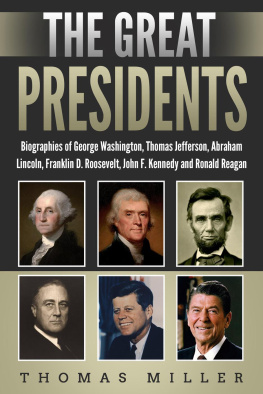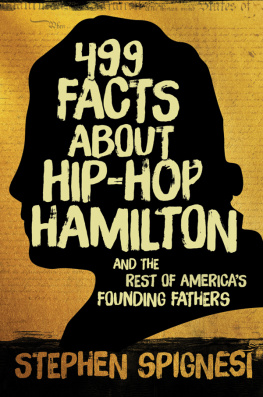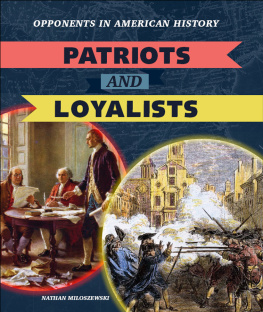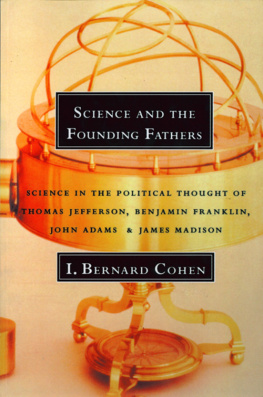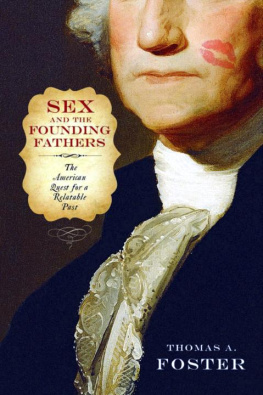Welcome to the EVERYTHING Series!
These handy, accessible books give you all you need to tackle a difficult project, gain a new hobby, comprehend a fascinating topic, prepare for an exam, or even brush up on something you learned back in school but have since forgotten.
You can choose to read an Everything book from cover to cover or just pick out the information you want from our four useful boxes: e-questions, e-facts, e-quotes, and e-ssentials. We give you everything you need to know on the subject, but throw in a lot of fun stuff along the way, too.
We now have more than 400 Everything books in print, spanning such wide-ranging categories as weddings, pregnancy, cooking, music instruction, foreign language, crafts, pets, New Age, and so much more. When youre done reading them all, you can finally say you know Everything!

PUBLISHER Karen Cooper
DIRECTOR OF ACQUISITIONS AND INNOVATION Paula Munier
MANAGING EDITOR, EVERYTHING SERIES Lisa Laing
COPY CHIEF Casey Ebert
ASSISTANT PRODUCTION EDITOR Jacob Erickson
ACQUISITIONS EDITOR Hillary Thompson
SENIOR DEVELOPMENT EDITOR Brett Palana-Shanahan
EDITORIAL ASSISTANT Ross Weisman
EVERYTHING SERIES COVER DESIGNER Erin Alexander
LAYOUT DESIGNERS Colleen Cunningham, Elisabeth Lariviere, Ashley Vierra, Denise Wallace
Visit the entire Everything series at www.everything.com
THE
EVERYTHING
FOUNDING
FATHERS
BOOK
All you need to know about the men
who shaped America
Meg Greene MA, MS and Paula M. Stathakis, PhD

Copyright 2011 by F+W Media, Inc. All rights reserved.
This book, or parts thereof, may not be reproduced
in any form without permission from the publisher; exceptions
are made for brief excerpts used in published reviews.
An Everything Series Book.
Everything and everything.com are registered trademarks of F+W Media, Inc.
Published by Adams Media, a division of F+W Media, Inc.
57 Littlefield Street, Avon, MA 02322 U.S.A.
www.adamsmedia.com
ISBN 10: 1-4405-2586-2
ISBN 13: 978-1-4405-2586-5
eISBN 10: 1-4405-2662-1
eISBN 13: 978-1-4405-2662-6
Printed in the United States of America.
10987654321
Library of Congress Cataloging-in-Publication Data
Greene, Meg.
The everything Founding Fathers book / Meg Greene and Paula M. Stathakis.
p. cm. (Everything)
Includes index.
ISBN-13: 978-1-4405-2586-5
ISBN-10: 1-4405-2586-2
ISBN-13: 978-1-4405-2662-6 (e)
ISBN-10: 1-4405-2662-1 (e)
1. Founding Fathers of the United StatesBiography. 2. United States. ConstitutionSignersBiography. 3. United StatesHistoryRevolution, 17751783. 4. United StatesHistoryConfederation, 17831789. 5. United StatesHistoryConstitutional period, 17891809. 6. United StatesPolitics and government17751783. 7. United StatesPolitics and government17831809. 8. Constitutional historyUnited States. I. Stathakis, Paula M. II. Title.
E302.5.G74 2011
973.30922dc22
2011010218
This publication is designed to provide accurate and authoritative information with regard to the subject matter covered. It is sold with the understanding that the publisher is not engaged in rendering legal, accounting, or other professional advice. If legal advice or other expert assistance is required, the services of a competent professional person should be sought.
From a Declaration of Principles jointly adopted by a Committee of the
American Bar Association and a Committee of Publishers and Associations
Many of the designations used by manufacturers and sellers to distinguish their products are claimed as trademarks. Where those designations appear in this book and Adams Media was aware of a trademark claim, the designations have been printed with initial capital letters.
This book is available at quantity discounts for bulk purchases.
For information, please call 1-800-289-0963.
Contents
Appendix C: Bibliography
The Top 10 Things You Might Not Know about the Founding Fathers
In 1916, at the Republican National Convention, Warren Harding, then a Republican senator from Ohio, first used the phrase Founding Fathers in his keynote address.
A number of Founding Fathers were slaveholders, including Benjamin Franklin. However, in 1784, Franklin freed his slaves. He was appointed as the head of the Pennsylvania Society for Promoting the Abolition of Slavery. The organization was one of the few public antislavery organizations in existence at that time.
Signing the Declaration of Independence was not just an act of rebellion by the Founding Fathers, it was also treason to the English Crown. If tried and found guilty, the punishment was hanging.
Not all of the Founding Fathers were college educated; in fact, George Washington did not go to college.
In one of the more interesting proposals put forth by the Founding Fathers, James Madison of Virginia proposed that congressional salaries be calculated based on the average price of wheat during a congressional members time in office.
At least twenty-nine of the Founding Fathers served in the Continental army during the Revolutionary War.
Six of the Founding Fathers attending the Constitutional Convention were engaged in land speculation: William Blount, Jonathan Dayton, Thomas Fitzsimons, Nathaniel Gorham, Robert Morris, and James Wilson.
The average age at which the Founding Fathers died: sixty-seven years.
Four of the Founding Fathers attending the Constitutional Convention (Abraham Baldwin, Nicholas Gilman, Daniel of St. Thomas Jenifer, and Alexander Martin) were lifelong bachelors.
Nearly all of the fifty-five men who gathered at the Constitutional Convention had some kind of experience in colonial politics. By the time of the 1787 convention, four-fifths or forty-one of the framers had served or were currently serving in the Continental Congress.
Introduction
ELECTION YEARS COME AND go, and so do politicians. But one thing remains constant: invoking the names of the Founding Fathers when trying to score political points with voters. The practice of making comparisons to those men who helped establish the nation is not new, nor is associating the personalities and politics of the Founding Fathers with current political agendas.
In the rush to claim the Founding Fathers for a particular political issue or party, certain facts may be ignored or lost. Truth be told, commanding the legacy of the Founding Fathers is not as simple as it might appear. The Founding Fathers were not a unified, monolithic group. They were a curious mix of occupations and backgrounds: farmers, inventors, merchants, writers, politicians, judges, lawyers, scientists, doctors, and teachers. One was a college president. Three were retired. Twelve were slaveholders. Most were natives of the thirteen colonies. Nine had emigrated from a variety of countries and regions, including England, Ireland, Scotland, and the West Indies. Some were quite wealthy, others were well-to-do, and some struggled daily with financial problems.

